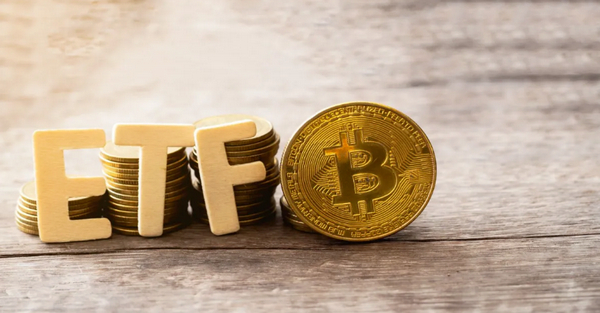-
 Bitcoin
Bitcoin $93,602.3659
6.91% -
 Ethereum
Ethereum $1,758.5924
11.56% -
 Tether USDt
Tether USDt $0.9999
0.00% -
 XRP
XRP $2.2214
6.72% -
 BNB
BNB $617.8314
3.52% -
 Solana
Solana $148.9760
9.14% -
 USDC
USDC $0.9996
0.00% -
 Dogecoin
Dogecoin $0.1799
13.14% -
 Cardano
Cardano $0.6820
9.59% -
 TRON
TRON $0.2479
0.49% -
 Chainlink
Chainlink $14.1250
8.00% -
 Avalanche
Avalanche $22.0564
11.95% -
 Sui
Sui $2.7332
24.78% -
 UNUS SED LEO
UNUS SED LEO $9.0430
-0.29% -
 Stellar
Stellar $0.2656
6.88% -
 Shiba Inu
Shiba Inu $0.0...01365
10.77% -
 Toncoin
Toncoin $3.0922
7.29% -
 Hedera
Hedera $0.1818
7.50% -
 Bitcoin Cash
Bitcoin Cash $360.5491
4.99% -
 Hyperliquid
Hyperliquid $19.1223
5.89% -
 Polkadot
Polkadot $4.0203
6.72% -
 Litecoin
Litecoin $83.5258
7.11% -
 Bitget Token
Bitget Token $4.5932
3.42% -
 Dai
Dai $1.0001
0.03% -
 Ethena USDe
Ethena USDe $0.9996
0.03% -
 Pi
Pi $0.6455
2.29% -
 Monero
Monero $225.6601
4.56% -
 Pepe
Pepe $0.0...08933
15.92% -
 Uniswap
Uniswap $5.8208
10.77% -
 Aptos
Aptos $5.2710
7.44%
What does the approval of the Bitcoin ETF mean?
The SEC's approval of the first Bitcoin ETF marks a pivotal moment for the cryptocurrency industry, offering investors easier access to Bitcoin while signaling broader acceptance and potential price growth.
Oct 12, 2024 at 10:12 am

What does the approval of the Bitcoin ETF mean?
After years of anticipation, the United States Securities and Exchange Commission (SEC) finally approved the first-ever Bitcoin exchange-traded fund (ETF) on October 19, 2021. This was a watershed moment for the cryptocurrency industry, as it provided investors with a new and more accessible way to gain exposure to Bitcoin.
What is a Bitcoin ETF?
An ETF is a type of investment fund that tracks the price of an underlying asset or group of assets. In the case of a Bitcoin ETF, the underlying asset is Bitcoin itself. This allows investors to buy and sell shares in the ETF as easily as they would buy and sell stocks.
What does the approval of the Bitcoin ETF mean for investors?
The approval of the Bitcoin ETF has several implications for investors:
- Increased accessibility: The Bitcoin ETF makes it much easier for investors to gain exposure to Bitcoin. Previously, investors had to buy Bitcoin directly on a cryptocurrency exchange, which can be a complex and risky process. The ETF provides a more convenient and regulated way to invest in Bitcoin.
- Lower fees: The Bitcoin ETF typically has lower fees than buying Bitcoin directly on a cryptocurrency exchange. This is because the ETF is regulated by the SEC and is subject to certain oversight and reporting requirements.
- More transparency: The Bitcoin ETF is more transparent than buying Bitcoin directly on a cryptocurrency exchange. This is because the ETF is required to disclose its holdings and its financial performance on a regular basis.
What does the approval of the Bitcoin ETF mean for the cryptocurrency industry?
The approval of the Bitcoin ETF is a major milestone for the cryptocurrency industry. It signals that the SEC is willing to approve Bitcoin-based investment products, which could lead to more institutional adoption of Bitcoin. This could, in turn, drive up the price of Bitcoin and lead to wider acceptance of cryptocurrencies in the mainstream.
Conclusion
The approval of the Bitcoin ETF is a significant development for both investors and the cryptocurrency industry. It provides investors with a new and more accessible way to gain exposure to Bitcoin, and it signals that the SEC is willing to approve Bitcoin-based investment products. This could lead to more institutional adoption of Bitcoin and wider acceptance of cryptocurrencies in the mainstream.
Disclaimer:info@kdj.com
The information provided is not trading advice. kdj.com does not assume any responsibility for any investments made based on the information provided in this article. Cryptocurrencies are highly volatile and it is highly recommended that you invest with caution after thorough research!
If you believe that the content used on this website infringes your copyright, please contact us immediately (info@kdj.com) and we will delete it promptly.
- After Being in a Downtrend, Dogecoin [DOGE] Is Poised to Reverse Its Current Outlook
- 2025-04-23 08:15:12
- RCO Finance (RCOF) Is Your Last Chance to Grab a Breakout Crypto Before It Takes Off
- 2025-04-23 08:15:12
- Qubic Becomes the Fastest Blockchain in History — Verified at 15.52M TPS by CertiK
- 2025-04-23 08:10:12
- Bitcoin (CRYPTO: BTC) price recovers as investors seek a safe haven
- 2025-04-23 08:10:12
- Galaxy Digital Holdings (BRPHF) Explodes Higher, Notching a Dramatic Intraday Surge
- 2025-04-23 08:05:12
- Why Qubetics Is the Best Altcoin to Buy Now
- 2025-04-23 08:05:12
Related knowledge

What is the difference in returns between long-term holding of a Bitcoin ETF and holding Bitcoin directly?
Apr 09,2025 at 04:15am
When considering the difference in returns between long-term holding of a Bitcoin ETF and holding Bitcoin directly, it's essential to understand the nuances and factors that affect each investment option. Both approaches have their unique advantages and potential drawbacks, which can significantly impact the overall returns over time. Understanding Bitc...

How is the "roll cost" of a futures Bitcoin ETF generated?
Apr 08,2025 at 01:22pm
The 'roll cost' of a futures Bitcoin ETF is a critical concept for investors to understand, as it directly impacts the performance of the ETF. In this article, we will delve into the mechanics of how the roll cost is generated, exploring the underlying processes and factors that contribute to this cost. Understanding Futures ContractsFutures contracts a...

How can the premium or discount of a Bitcoin ETF be narrowed through an arbitrage mechanism?
Apr 09,2025 at 12:07am
Arbitrage mechanisms play a crucial role in narrowing the premium or discount of a Bitcoin Exchange Traded Fund (ETF). Understanding how these mechanisms work can provide valuable insights into the dynamics of Bitcoin ETFs and their relationship with the underlying asset. This article will delve into the specifics of how arbitrage can be used to align t...

What factors affect the bid-ask spread of a Bitcoin ETF?
Apr 08,2025 at 08:50pm
The bid-ask spread of a Bitcoin Exchange Traded Fund (ETF) is a critical metric that investors and traders closely monitor. It represents the difference between the highest price a buyer is willing to pay (bid) and the lowest price a seller is willing to accept (ask). Several factors influence this spread, and understanding them can help investors make ...

How is the seed capital of a Bitcoin ETF used?
Apr 10,2025 at 02:15pm
The seed capital of a Bitcoin ETF plays a crucial role in the establishment and operation of the fund. This initial investment is used to create the fund's underlying assets, manage operational costs, and ensure the ETF can start trading on an exchange. Understanding how this seed capital is utilized provides insight into the mechanics of Bitcoin ETFs a...

What is the difference between "physically backed" and "synthetic" Bitcoin ETFs in terms of holding assets?
Apr 10,2025 at 04:56pm
Bitcoin Exchange Traded Funds (ETFs) have become a popular way for investors to gain exposure to the cryptocurrency market without directly owning the underlying asset. There are two primary types of Bitcoin ETFs: physically backed and synthetic. Understanding the differences between these two types, particularly in terms of how they hold assets, is cru...

What is the difference in returns between long-term holding of a Bitcoin ETF and holding Bitcoin directly?
Apr 09,2025 at 04:15am
When considering the difference in returns between long-term holding of a Bitcoin ETF and holding Bitcoin directly, it's essential to understand the nuances and factors that affect each investment option. Both approaches have their unique advantages and potential drawbacks, which can significantly impact the overall returns over time. Understanding Bitc...

How is the "roll cost" of a futures Bitcoin ETF generated?
Apr 08,2025 at 01:22pm
The 'roll cost' of a futures Bitcoin ETF is a critical concept for investors to understand, as it directly impacts the performance of the ETF. In this article, we will delve into the mechanics of how the roll cost is generated, exploring the underlying processes and factors that contribute to this cost. Understanding Futures ContractsFutures contracts a...

How can the premium or discount of a Bitcoin ETF be narrowed through an arbitrage mechanism?
Apr 09,2025 at 12:07am
Arbitrage mechanisms play a crucial role in narrowing the premium or discount of a Bitcoin Exchange Traded Fund (ETF). Understanding how these mechanisms work can provide valuable insights into the dynamics of Bitcoin ETFs and their relationship with the underlying asset. This article will delve into the specifics of how arbitrage can be used to align t...

What factors affect the bid-ask spread of a Bitcoin ETF?
Apr 08,2025 at 08:50pm
The bid-ask spread of a Bitcoin Exchange Traded Fund (ETF) is a critical metric that investors and traders closely monitor. It represents the difference between the highest price a buyer is willing to pay (bid) and the lowest price a seller is willing to accept (ask). Several factors influence this spread, and understanding them can help investors make ...

How is the seed capital of a Bitcoin ETF used?
Apr 10,2025 at 02:15pm
The seed capital of a Bitcoin ETF plays a crucial role in the establishment and operation of the fund. This initial investment is used to create the fund's underlying assets, manage operational costs, and ensure the ETF can start trading on an exchange. Understanding how this seed capital is utilized provides insight into the mechanics of Bitcoin ETFs a...

What is the difference between "physically backed" and "synthetic" Bitcoin ETFs in terms of holding assets?
Apr 10,2025 at 04:56pm
Bitcoin Exchange Traded Funds (ETFs) have become a popular way for investors to gain exposure to the cryptocurrency market without directly owning the underlying asset. There are two primary types of Bitcoin ETFs: physically backed and synthetic. Understanding the differences between these two types, particularly in terms of how they hold assets, is cru...
See all articles























































































